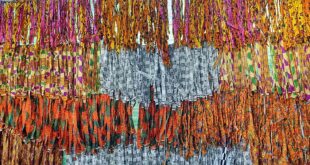Russia’s war of aggression caused a sudden grain blockade that threatens food security worldwide. Despite the signing of the grain agreement between Russia and Ukraine, mediated by Turkey and the US, concerns remain high.
OPINION
A few hundred Kilometres from us, unspeakably terrible things are going on. Aggressive behaviour unfortunately seems inherent in man and yet war is something fundamentally inhumane, it lacks any just order to which we are entitled at all times on the basis of our universal human rights. We also have a right to ensure that international rules are not broken within the framework of international law, as enshrined in the Charter of the United Nations
The majority of people in Europe have grown up with the privilege of knowing that security is fundamentally given. Many, especially young Ukrainians and their guests, numerous foreign students and employees, have also been able to enjoy this privilege or have been on their way there.
When the country began to democratize with the Orange Revolution in 2004, to break up the encrusted systems of the oligarchs and to liberalize society, many people of the former Soviet republic experienced something like real freedom for the first time. This fact of first winning personal freedom dearly and then being snatched from it is one of the many cruel twists and turns of recent Ukrainian history.
When the first reports of the Russian invasion ran across the screens on February 24, I, like probably many others, did not believe that sovereign Ukraine would still defend itself against Russia a hundred days later. We may, we must continue to hope, that peace will reign again in this region.
It is extremely painful to acknowledge that heavy weapons support to Ukraine is currently needed to return to the negotiating table in the future. War may be, if at all, the last possible solution to protect human lives.
Crises always offer opportunities. It feels like the war has brought us closer together again in Europe. It also clearly shows us the interconnectedness of our global community, which we ultimately represent as human beings.
We are interdependent beings. We do not live autonomously. Recognizing connectedness, maintaining connections, but also: demanding political action, this is what civil society in democracies can contribute, among other things, when it comes to peace processes.
A future of coming together will sometimes decide how much we can cushion the effects of the war as Europeans but also as a world community. No one should be left behind, we must think and act in an all-encompassing way. We must work to integrate refugees on an equal footing.
We must work to spell out the fundamental values of the European Union and to consistently review the rule of law of all member states. We need to think about the children of the Russian diaspora who are lumped together with Putin in playgrounds and discriminated against and attacked. We must take into account the children in African crisis areas who are exposed to life-threatening hunger due to the lack of grain supplies.
As Vice-President of the Committee on Development with a focus on food security, I have dealt intensively with the situation of our partner countries in Africa, especially in the Sahel.
Before the war, about a third of the world’s wheat exports came from Russia and Ukraine. Many countries on the African continent, especially Egypt, countries in the Horn of Africa and West Africa, are largely dependent on Russian and Ukrainian exports.
Now, it is not surprising that Ukraine cannot maintain its export volumes in these times. Russia, for its part, has decided to restrict its own food exports with the clear aim of further escalating the situation. The hunger crisis, which has already fully arrived in Somalia, for example, threatens to spread in the coming weeks and months and become one of the worst global famines of recent decades.
It is our task not only to pay attention to the supply of the German or European population with basic foodstuffs. It is our duty to keep an eye on those who have already suffered unspeakably in their home regions in recent decades as a result of climate change triggered by rich regions of the world.
From this point of view, it is again privileges that we as a European Community will have to deal with in the coming period. To appreciate privileges and to act accordingly prudently, to give up privileges and to act accordingly in solidarity
Hard months seem to be coming: inflation, higher energy costs, possible supply bottlenecks for everyday goods. These are all challenges that we have to face and that we will be better able to overcome if we remain in a benevolent relationship with each other.
Today and here I speak out in favour of a free and democratic Europe. For a Europe without arbitrariness, without senseless carnage, without war! A Europe of peace, the world as a whole in view.
———-
Dr Pierrette Herzberger-Fofana, MEP
Member of the European Parliament
Vice-Chair, Committee on Development (DEVE)
Vice-Chair for Relations with the Pan-African Parliament
Vice-chair to the ACP-EU Parliamentary Assembly
 THE AFRICAN COURIER. Reporting Africa and its Diaspora! The African Courier is an international magazine published in Germany to report on Africa and the Diaspora African experience. The first issue of the bimonthly magazine appeared on the newsstands on 15 February 1998. The African Courier is a communication forum for European-African political, economic and cultural exchanges, and a voice for Africa in Europe.
THE AFRICAN COURIER. Reporting Africa and its Diaspora! The African Courier is an international magazine published in Germany to report on Africa and the Diaspora African experience. The first issue of the bimonthly magazine appeared on the newsstands on 15 February 1998. The African Courier is a communication forum for European-African political, economic and cultural exchanges, and a voice for Africa in Europe.






























